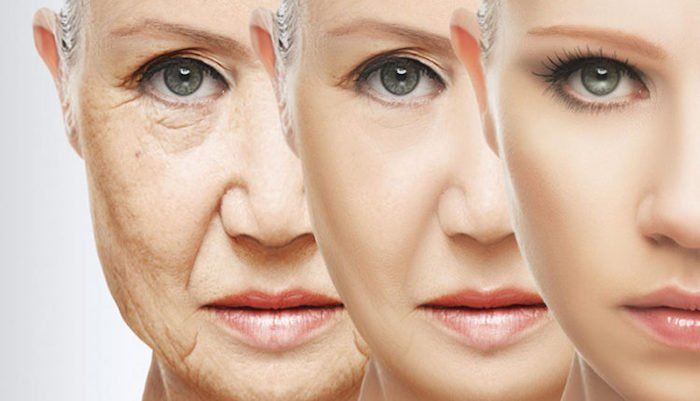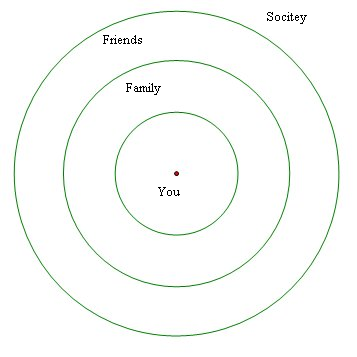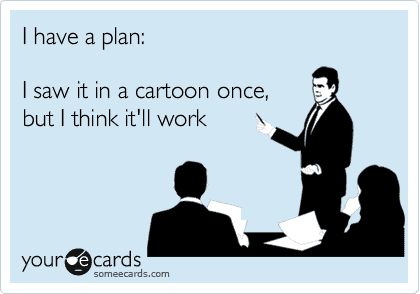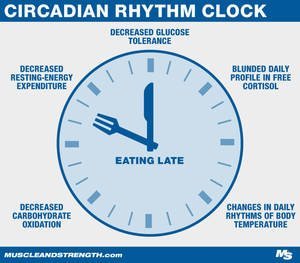Your Anti-aging Lifestyle Must Address These Concerns, Part 1
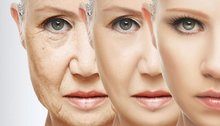
Your anti-aging lifestyle needs to address a specific set of concerns based on longevity science. Here I address the first six based on responses to a survey that asked what’s holding people back from doing the work that needs to be done to extend their healthspan.
About a week ago (early April, 2021) I asked my Subscribers (become one!) to fill out a survey about what they wanted to see in a video course I’m creating based on longevity science. The course is a comprehensive blueprint covering best practices for your anti-aging lifestyle aimed at what you can do now to slow down the aging process, or even reverse it.
What follows is an aggregate of similar issues respondents expressed in the survey, or in some cases verbatim comments, and my responses.
My responses are meant to cleave a path toward the various solutions pertinent to the enumerated issues, while I labor to offer a complete map in my forthcoming course to living long and strong as we age.
These were the question topics:
- Purposeful living
- Healthy habit-making
- Meditation
- Nutrition/Diet
- Time restricted eating
- Gut health
- Restorative sleep
- Detoxification
- Hormone optimization
- Mobility
- Cardiovascular health
- Lean muscle and strength
Here in Part 1, I address the issues and comments made by respondents to the survey that covers topics 1 thru 6. In Part 2, I’ll cover the rest.
Surely you will find the same issues, limitations and concerns that you grapple with expressed below — and perhaps my guidance will be helpful.
If you have questions, or comments, please write them in the Comments below, which you can do anonymously if you wish.
1. Purposeful, Intentional Living
Do you live with Intention and purpose? If not, what might help you take steps in that direction?
Before you can launch yourself on a path that’s different than any your trod before, you need to assess who you are and what you’re doing with your life. Your anti-aging lifestyle has to begin with such a self-assessment in order to understand what you need to put behind you, and what you need to embrace.
Keep that simple tenet in mind as you read the rest of this post.
I’m too influenced by other people’s issues that I have to grapple with.
This issue is common to us all. You can think of those people who influence us as concentric circles that surround us. Each of them is at the center, and each circle represents an influence level, the closest circle being those who are most influential.
The first, closest circle to you are your parents. The next might be the rest of your family. Then your teachers and closest friends. The next circle might be your boss and co-workers. Each circle is composed of those who influence you in certain ways, and these inputs largely define how you see the world — and yourself.
Your challenge is to know what’s real. At your core, you may not be the person that all these influences built you to be. You have to exercise discretion. You need to discern what influences can improve yourself and your life, and which to tear down.
Learn to say “no”, or “not now”. Learn to prioritize yourself first so that you can be more valuable to those who want to help.
Too bored.
I’ve often wondered if boredom stems more from simply not being interested in anything, or not having the inspiration or energy to discover and pursue areas of interest.
I can offer no advice to someone whose boredom extends from a complete disinterest in whatever life has to offer. (And surely this mindset is completely counter to your anti-aging lifestyle.) But if it’s a question of inspiration or energy, consider connecting with people who are already expressing these attributes by how they live their lives.
It might seem simplistic, but the “Buddy System” can do wonders for those who are willing to put some  effort into getting what they want from life. Humans are social creatures influenced and inspired by others, and sometimes you just need a “buddy” (sometimes, anybody) who is on the path you want to tread, and is willing for you to tag along.
effort into getting what they want from life. Humans are social creatures influenced and inspired by others, and sometimes you just need a “buddy” (sometimes, anybody) who is on the path you want to tread, and is willing for you to tag along.
If boredom or some low level depressing squashes your zeal for life, connect with someone who is charging ahead. Let his or her energy inspire and energize you. Of course, if you can find someone living an anti-aging lifestyle, all the better.
If you don’t know someone like that, read a biography or autobiography about those who overcame adversity and shaped the life they wanted to live.
Here’s a post to get you going: Need A Change? Make It Fun!
I’m trapped by circumstances that seem beyond my control, which creates stress, financial insecurity and general unhappiness.
Undoubtedly, some are beyond your control; at least they seem to be at the moment. When you dig deep enough, however, oftentimes the unwanted situation you’re in seems like it’s set in stone, but is really constructed by choices that were once made, and can be unmade.
For instance:
- A marriage to someone who has a completely different belief system, conflict resolution skills, spending habits, etc. can trigger the feelings and situation you mention, but you’re not condemned to be married to that person.
- A lifestyle that is too expensive can be down-scaled — you just have to weigh the importance of material things to the price paid in anxiety and stress.
- An outlook that interprets roadblocks as impenetrable stone walls could be looked at from a different perspective that sees them as walls of straw, or a wall that can be circumnavigated.
There’s usually a way out of traps that doesn’t require you to gnaw your foot off. Ask for help. Look at the problems from a different vantage point. Get creative. Be willing to change.
Read my post: Why Change Is Hard — The 3 Reasons We Get Stuck.
Despite having habits that are supportive of living a purpose-driven life, I grapple with a chronic disease, insufficient sleep, and a lack of community that is making me feel more isolated.
Many chronic diseases are wake-up calls that you’ve been doing something unhealthy for too long. Heart disease is a good example, given that most of it stems from many years of poor eating habits combined with no exercise habits.
Unfortunately, our medical system tends to give you a pill for what ails you, and that pill just makes your disease more tolerable, as opposed to rooting out its cause. You need to find the root cause of whatever chronic health issue plagues you, and then adopt the lifestyle habit that will help reverse it.
Yes, being deprived of sleep can ruin anyone’s best intentions. Scroll down to “Restorative Sleep” to read my thoughts on that.
Finally, community, or the lack thereof… well, as I said earlier, humans are social creatures and most of us don’t thrive without the support of others. One significant reason the long-lived people inhabiting the “Blue Zones” make it to a healthy old age is due to the strength of their community bonds. Truly, these Blue Zone people are living your anti-aging lifestyle.
If you need more socialization, reach out to friends and acquaintances. Schedule Zoom or phone calls. Meet up for walks or a picnic. Join a group that does something you’re interested in. Investing a little effort here can pay dividends.
I need to get better at scheduling.
What I do to help ensure something gets done is to write it down on Google Calendar, and have the system alert me 15 minutes before the scheduled time.
I find that when I write it down and am reminded of it, there’s a much better chance that it gets done.
If you find that you keep ignoring what you scheduled, you have to ask yourself if it’s really something you want to do.
For repetitive tasks, consider using your smartphone to alert you. This can be especially useful for those trying to become more mindful of what runs their lives.
For instance, we have this incessant inner dialogue with ourselves that is typically a barge of little and large judgements about whatever we’re encountering, or about ourselves. One key to becoming mindful is to recognize and look at this stuff, what you’re saying to yourself. If it isn’t helping to shape what you want to experience or want to be, you have to change the self-talk.
Set your phone to chime each hour. When it does, stop everything and explore what you’ve just been doing and thinking about. What words were you uttering to yourself. Are they uplifting or the opposite. Take this moment to reset. Over time, you’ll quickly catch yourself undermining what you really want out of life and will seek the needed remedies. Words matter. Thoughts are things.
Read my post: The Mind Architect and The Breath Guru.
2. Healthy Habit-making
Have you established the healthy habits you want? If not, what stops you from establishing the habits you need to achieve your desires?
I need to start working out at home.
Before the pandemic, many people were consistently exercising and at the gym, and did not carryover that habit to home once gym access stopped.
I get this. Not only does a gym offer you an environmental reset, but you can be encouraged by watching others exercise and be able to use all the equipment you need to get a good workout. Moreover — something that may go unrecognized — there’s a psychological shift that happens as you go through the process of getting to the gym; a reset that gets you primed to do the work.
To get yourself to exercise at home, first realize that there’s plenty you can do with little or no equipment. (Check out the YouTube channels Minus the Gym and Fitness FAQs.)
Once you create a workout plan for yourself, consider these tactics to get yourself to do the work:
- Recruit a buddy and schedule the exercise.
- Choose a time when there’s the least chance for scheduling conflicts.
- Prepare by laying out your apparel, playing motivating music and doing a warm up routine, such as walking around the block, or mobility drills.
- Track and record exercises, sets and reps.
I’m too disinterested and lazy to work on better habits.
OK, you got what you want. Your anti-aging lifestyle plan is to hope for the best.
Work and other commitments depletes the energy needed to eat better and exercise.
Yes, assuming you have some to begin with, energy is a finite thing. It needs to be cultivated and expended wisely.
Are you doing either?
There isn’t anything intrinsic in work and commitments that are energy depleting; in fact, some people are invigorated by them. Which way it goes for you is largely dependent on how you feel about your work and commitments.
Of course, if your job is to dig ditches with a shovel, you’re going to be tired by the end of the day. And if you commit to doing more than you can reasonably do, you’re going to be frazzled and depleted. So, assuming your work doesn’t take a physical toll, see if there’s a way to work that doesn’t drain you, because if it’s not physical work, what’s draining your energy is the impact it has on you psychologically, not physically, though it might feel physical.
Scroll down and read what I have to say about meditation, nutrition and restorative sleep — doing these right can all add to your energy reservoir.
For more on habit making, see these articles. They can make a difference.
3. Meditation
Would you like to learn how to meditate? If so, have you tried and given up? Why?
My mind wanders. I can’t silence my mind. Too many thoughts and the inner voice wouldn’t shut up.
This happens to everyone.
An untrained mind chatters incessantly, which is where the term “monkey mind” is quite apropos. We don’t have a switch to turn it off when meditating, but what we can do is have a technique to quell it a bit.
The first thing to do is not get upset that you’re trying to meditate but are being disturbed by the chatter.
The second thing to do is to observe the chatter for a few minutes, and then visualize gathering it all up and putting it into a box. So they won’t be offended and insist that you pay attention right now, promise the monkeys that you’ll listen to what they have to say later.
The third thing to do is to return to your focus, whether it be on a mantra, image or visualization, or simply your breath.
I helped my friend Gerry on this, and wrote about it in Be here now: “Gerry’s” Dharma Lesson.
I need to get more adept at meditation.
Practice makes perfect. Start out doing mini meditations of five minutes and extend it from there. Become more adept by following my suggestions above.
You can also help get your brainwaves to produce a pattern conducive to meditation by listening to a certain frequency. See my post: Meditate Like A Monk In 20 Minutes.
4. Nutrition and Diet
What keeps you from eating better? Is there anything you’d like to improve regarding your nutrition?
Organic food is pricey and tasteless.
Pricey, yes. Tasteless, well, how would pesticides and chemicals used to grow non-organic food make them taste better?
I have no advice about the taste of organic food, given that it’s how they’re prepared that confers taste if you don’t like the natural taste of a raw tomato, carrot, cucumber, etc.
I do have a suggestion about the expense of organic food, and that is to buy the non-organic foods that are grown with the least chemicals, and buy the organic versions of those grown with the most chemicals.
To guide you in that, read 10 “Clean Fifteen” Veggies and Fruits Named “Healthiest Foods On Earth”.
Cravings from time-to-time for ice cream, pie and potato chips that could be the reason for belly fat.
Actually, although the sugar and simple carbs in ice cream and pie, et al, are responsible for various chronic issues like metabolic syndrome if eaten to excess, the belly fat comes from a combination of genetic propensity, hormonal imbalance and consuming more calories than you expend (the last usually being the most significant).
Cravings are hard to deny, so I recommend four tactics:
- Allow yourself to cave to your cravings, but gradually eat less and less of the junk, and simultaneously…
- Find healthier substitutes, but first…
- Stuff yourself with something to diminish the hunger part of the cravings, such as a big glass of water, preferably with two tablespoons of apple cider vinegar, or a head of lettuce (ha!), and afterwards…
- Brush your teeth with some minty toothpaste, or suck on a breath mint, given that this will make it less likely that you’ll return to the trough.
Time and laziness, fatigue and long work days. It’s easier to grab something quick and quick is usually unhealthy. I would like to eat more vegetables, fruits, nuts and seeds. I love salads but it usually takes too long to make one if I’m trying to hurry and get ready for work.
Three ideas:
- Begin your day earlier by going to bed earlier.
- Apples, berries, almonds, walnuts, celery and carrots don’t take any longer to “grab” than a handful of Captain Crunch cereal.
- When you have more time, make several servings of healthy food that you can take with you when time is limited. You can do this with salads — just don’t add the dressing till you’re ready to eat it.
What exactly do I eat and what supplements/herbs do I take, how often and in what quantity, with food or without, day or night, and so on to turn back my biological clock and make my body “younger.” What are the ways that work that allow a 72 year old male to continue to have really great sexual relations, frequently?
Wow, that’s a lot to address, which is why I’m creating the your anti-aging lifestyle plan, a how to video course for which you seem to be the ideal student.
The best I can to address all that right now is to direct you to some resources pertinent to your interests:
5. Time-restricted Eating
Intermittent fasting is a proven way to improve body composition and improve healthspan. What would help you reduce the hours during which you eat?
I’ve already been doing this for a couple of years, eating only between 7:00 a.m. and 6:30 p.m., with at least weekly 24 hour fasts (from 6:30 p.m. [after my dinner] until 6:00 p.m. the next day when I eat dinner). Has little impact on my waistline. I’m not diabetic or pre-diabetic. I can do this and not eat ice cream or pie for a month and see very little result on the waist. Muscle mass is very good.
I can relate to what you’re saying given that I haven’t noticed much change in body composition due to intermittent fasting during the four-plus years I’ve practiced it.
Here are a few suggestions to tweak things:
- Make sure you’re not eating more calories than you expend in that shortened feeding window. If you want to lose body fat, you need to be in a caloric deficit.
- Confuse your metabolism (which tends to reset to whatever number of calories consumed) by changing your IF regime. Mix daily time-constrained feeding windows with alternate day fasting (don’t go overboard with this) to the so-called “5:2 Plan” (5 days of normal eating, 2 days under-eating).
- Do one cheat day each week where you eat more calories than usual.
- Add plenty of cardio exercise, including long walks (one-plus hours).
I need an activity of some kind to keep my mind off of food. I eat out of habit, not hunger.
Yes, this is all-to-common. We all do it to some extent.
There’s another thing in addition to “habit” to consider — dehydration. Although not recognized by us, we often eat when we’re actually dehydrated.
Here are a few tips to consider doing:
- Drink a big glass of water before you start preparing your food.
- Go for a walk rather than succumb to habit-eating, or do something quick to disrupt the desire, such as 50 jumping jacks, 20 burpees, 40 squats, etc.
- Eat some water-loaded food before fattening food, such as an apple, celery, cucumber, carrot, etc.
6. Gut Health
Fiber and fermented foods are essential for gut health. What could get you to eat more of such foods?
I’m very cautious about fermentation, because they tend to be highly acidic. No one has been able to explain why eating highly acidic food is not bad.
Fermentation is a natural process whereby microorganisms like yeast and bacteria convert carbs like starch and sugar into alcohol or acids. The alcohol or acids act as a natural preservative and give fermented foods their distinct zest and tartness.
To be able to safely store fermented foods for three months or longer, they need to reach a pH level of 4.6 or lower, which is indeed acidic.
While fermented foods might not be good for everyone, they are for most people because of the bacteria produced during fermentation.
Fermentation increases the beneficial bacteria in the foods which can improve gut health and help pre-digest the food, which means it is often easier to digest, and making vitamins and minerals in food easier for the body to assimilate. (Read more about that here.)
Although there are alkaline fermented foods, they’re relatively rare and unnecessary for most people. For most of us, fermented foods are healthy and good for us. As the Cleveland Clinic says, fermented foods:
- Help you digest food.
- Improve the dominance of beneficial bacteria in your gut. (Research shows a less diverse gut microbiota is associated with many chronic disease, such as obesity, asthma and chronic inflammatory conditions such as inflammatory bowel disease.
- Help your body make various vitamins (B1, B2, B3, B5, B6, B12 and K.)
Needs to taste good.
How tasty was your first sip of hard alcohol, wine and beer, or even coffee? You might have learned to like the taste of those you continued trying. This is because taste buds are malleable.
We all know people who are so acclimated to high fat/sugar/fat fast food that plain ole regular food taste tasteless. It’s as if fast food loving taste buds have become desensitized to the more subtle flavors of real food.
My point is that if there are healthy foods you don’t like the taste of, keep nibbling at them till your taste buds learn to like them.
I need to know about more fermented food to try it.
Here are three authoritative resources:
- Harvard Health: The growing role of probiotics and Fermented foods for better gut health.
- Cleveland Clinic: 5 Reasons to Add More Fermented Foods to Your Diet.
The Heart Foundation: Fermented foods: the latest trend.
Come on back on April 25th May 2nd I’ll post the Q&A for topics 7 thru 13. If you’re not a Subscriber, get on board so you don’t miss it and the Sunday Newsletter.
Last Updated on June 21, 2022 by Joe Garma

